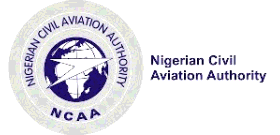 Nigeria’s Domestic Airlines See Record Passenger Refunds as NCAA Tightens Consumer Protection
Nigeria’s Domestic Airlines See Record Passenger Refunds as NCAA Tightens Consumer Protection
The Nigeria Civil Aviation Authority (NCAA) has reported a dramatic surge in passenger refunds by domestic airlines, reflecting a new era of compliance with consumer protection regulations and a renewed focus on passenger rights. According to Mr. Michael Achimugu, Director of Public Affairs and Consumer Protection at the NCAA, airlines refunded a total of ₦257,195,724.39 to passengers between January and August 2025. This figure marks a remarkable increase of over 137% compared to the ₦108,308,037.40 refunded during the same period in 2024, and an even more striking leap from the ₦32,766,652.30 recorded in 2023.
This surge in refunds is not just a statistical anomaly—it is a direct result of the NCAA’s intensified enforcement of Part 19 of the NCAA Regulations 2023, which governs passenger rights and airline obligations. The Authority’s efforts have led to a significant improvement in how airlines handle disruptions, cancellations, and delays, ensuring that more passengers are compensated promptly and fairly. Mr. Achimugu described this as “one of our proudest achievements, knowing that way more passengers are being protected now than ever before in the 25-year history of the NCAA.”
Among the airlines, Aero Contractors stood out with an individual refund growth rate of 137%, underscoring the broader industry trend toward greater accountability and responsiveness. The NCAA’s proactive stance has sent a clear message to all operators: compliance is not optional, and passenger welfare must be at the heart of airline operations.
Beyond cash refunds, the NCAA’s consumer protection drive extends to the provision of mandatory hotel accommodation (HOTAC) for stranded passengers. Verified records from January to July 2025 show that airlines spent ₦6,083,229 on accommodations, partnering with reputable hotels such as Cocos Hotel, Grand Cubana Hotel in Abuja, NOCY Castle Hotel, Kim Royal Hotel, JC42 Apartment in Asaba, and Mayor & Diplomat Hotel in Lagos. This initiative ensures that passengers affected by significant delays or cancellations are not left without support, further strengthening trust in the domestic aviation sector.
These improvements come against the backdrop of a challenging operating environment in Nigeria, where airlines face fluctuating fuel prices, infrastructure constraints, and regulatory pressures. Despite these hurdles, the NCAA’s commitment to upholding passenger rights has never been stronger. The Authority has also emphasized the importance of protecting airline staff and cabin crew from violence or assault by passengers, reinforcing the principle that safety and respect must be mutual and non-negotiable across the industry.
For Africa’s travel sector, Nigeria’s experience offers valuable lessons in regulatory enforcement and consumer advocacy. The NCAA’s approach—combining strict oversight with transparent reporting and collaboration with hospitality partners—demonstrates how regulatory bodies can drive meaningful change even in complex markets. The Authority’s willingness to “name and shame” non-compliant airlines, as reported in recent industry updates, has further incentivized operators to prioritize punctuality, reliability, and customer care.
These developments are particularly relevant as African aviation continues to recover from the disruptions of recent years. With passenger numbers rebounding and competition intensifying, airlines that invest in robust consumer protection frameworks are likely to gain a competitive edge. The Nigerian model, with its focus on both financial compensation and practical support for affected travelers, sets a benchmark for other regulators and operators across the continent.
Looking ahead, the NCAA has pledged to maintain its vigilance and adapt its strategies to evolving industry dynamics. The Authority’s ongoing dialogue with airlines, hotels, and other stakeholders is designed to ensure that passenger rights remain central to the sector’s growth. At the same time, the NCAA is mindful of the need to balance consumer protection with operational realities, recognizing the unique challenges faced by Nigerian carriers.
For travel professionals across Africa, these changes in Nigeria highlight the growing importance of regulatory compliance, customer-centric service, and transparent communication. As the continent’s aviation industry matures, the ability to protect and empower passengers will be a key driver of trust, loyalty, and long-term success. The NCAA’s achievements in 2025 are a testament to what can be accomplished when regulators, airlines, and service providers work together to put passengers first.
